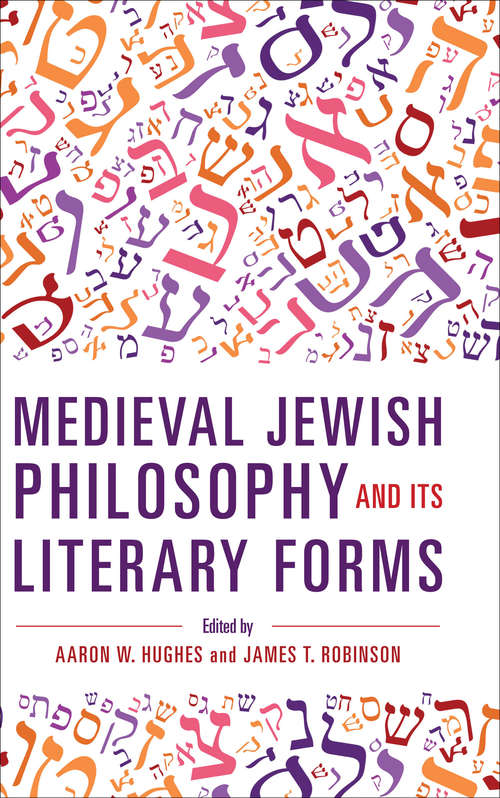Medieval Jewish Philosophy and Its Literary Forms (New Jewish Philosophy and Thought)
By:
Sign Up Now!
Already a Member? Log In
You must be logged into Bookshare to access this title.
Learn about membership options,
or view our freely available titles.
- Synopsis
- &“This well-written, accessible [essay] collection demonstrates a maturation in Jewish studies and medieval philosophy&” (Choice). Too often the study of philosophical texts is carried out in ways that do not pay significant attention to how the ideas contained within them are presented, articulated, and developed. This was not always the case. The contributors to this collected work consider Jewish philosophy in the medieval period, when new genres and forms of written expression were flourishing in the wake of renewed interest in ancient philosophy. Many medieval Jewish philosophers were highly accomplished poets, for example, and made conscious efforts to write in a poetic style. This volume turns attention to the connections that medieval Jewish thinkers made between the literary, the exegetical, the philosophical, and the mystical to shed light on the creativity and diversity of medieval thought. As they broaden the scope of what counts as medieval Jewish philosophy, the essays collected here consider questions about how an argument is formed, how text is put into the service of philosophy, and the social and intellectual environment in which philosophical texts were produced.
- Copyright:
- 2019
Book Details
- Book Quality:
- Publisher Quality
- Book Size:
- 374 Pages
- ISBN-13:
- 9780253042545
- Related ISBNs:
- 9780253042514
- Publisher:
- Indiana University Press
- Date of Addition:
- 10/26/23
- Copyrighted By:
- IUP
- Adult content:
- No
- Language:
- English
- Has Image Descriptions:
- No
- Categories:
- History, Nonfiction, Religion and Spirituality, Philosophy
- Submitted By:
- Bookshare Staff
- Usage Restrictions:
- This is a copyrighted book.
- Edited by:
- Aaron W. Hughes
- Edited by:
- James T. Robinson
Reviews
Other Books
- by Edited by Aaron W. Hughes and James T. Robinson
- in History
- in Nonfiction
- in Religion and Spirituality
- in Philosophy
